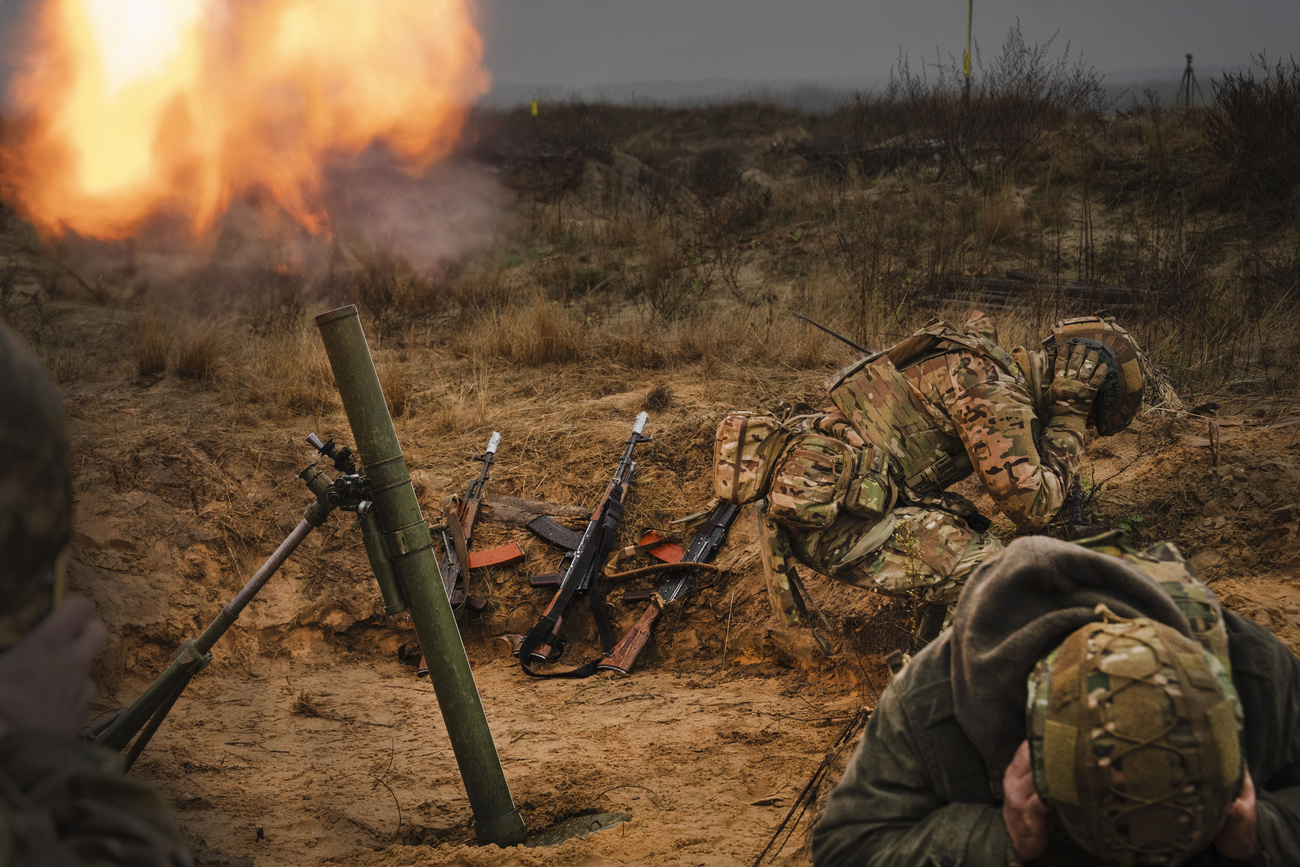Swiss drone pilot joins Ukraine War, faces legal risks at home

Drones are playing an increasingly crucial role in Ukraine, with a Swiss drone pilot now fighting on the front line.
In late April, 41-year-old Patrick Messmer left his life in Switzerland to go to war, driven by conviction. “It’s clear to me that the Russians won’t stop in Ukraine if we don’t stop them. That’s why I left,” he explained.
‘Killing, a Bit Like a Computer Game’
Messmer’s last job in Switzerland was at a cheese dairy. He was also on the board of the local shooting club, where he trained young marksmen. Today, he drops homemade bombs from drones onto Russian units.
At night, he operates with two comrades close to the front line, piloting his drone over enemy positions to drop grenades. Messmer kills people at the touch of a button from a safe distance. It’s brutal, but it doesn’t cause him sleepless nights. “I don’t have any extreme reactions when killing. It’s a bit like a computer game.”
A new dimension of war
Drones have transformed warfare in Ukraine. Day and night, reconnaissance drones from both sides hover over the battlefield, observing the enemy. While large military drones were primarily used at the start of the war, smaller drones, like those piloted by Messmer, now dominate.
Instead of costing millions, they only cost thousands or even hundreds of dollars. Ukraine has ordered one million drones this year alone.

More
The Swiss man risking his life as a mercenary in the Ukraine war
The battlefield is also a battleground for electromagnetic warfare, with both sides using jammers to disrupt communication between drones and their pilots. Russia is considered a leader in this technology, known as “jamming.” “That’s our biggest problem,” says Messmer. “We lose drones over the target area because of it.”
In the Foreign Legion
Messmer serves in the International Legion for the Defence of Ukraine, which was established after Russia’s invasion in 2022. Volunteers from various countries fight within this legion.

More
‘We have a unique opportunity to regulate autonomous weapons’
There have been reports of extremists and criminals joining the force. Messmer’s commander, who calls himself Pasha, acknowledged this in an interview with Rundschau: “We have people who are fleeing criminal prosecution in their home country.” However, most volunteers come to fight for freedom in Ukraine. “I have great respect for that,” Pasha added.
Prison sentence considered
In Switzerland, Patrick Messmer faces imprisonment for his involvement in Ukraine. Swiss nationals who serve in foreign militaries can face a fine or a prison sentence of up to three years. The military justice system is aware of Messmer’s case, and the opening of proceedings is currently under consideration.
Additionally, Messmer is under investigation on suspicion of violating the Weapons Act. He claims that all of his 20 or so weapons are correctly registered in Switzerland, according to his statements to Rundschau. The Lucerne public prosecutor’s office has declined to comment on the ongoing proceedings, with the presumption of innocence still applying.
Messmer intends to remain in Ukraine after the war. “After I retire, I might return to Switzerland and serve my sentence.” He is not worried about dying in the conflict. “In our position, we’re so far away from the gunfire that the risk is almost zero. And if a glide bomb hits me, so be it.”
Translated from German using DeepL/amva

More
Our weekly newsletter on foreign affairs

In compliance with the JTI standards
More: SWI swissinfo.ch certified by the Journalism Trust Initiative









You can find an overview of ongoing debates with our journalists here . Please join us!
If you want to start a conversation about a topic raised in this article or want to report factual errors, email us at english@swissinfo.ch.